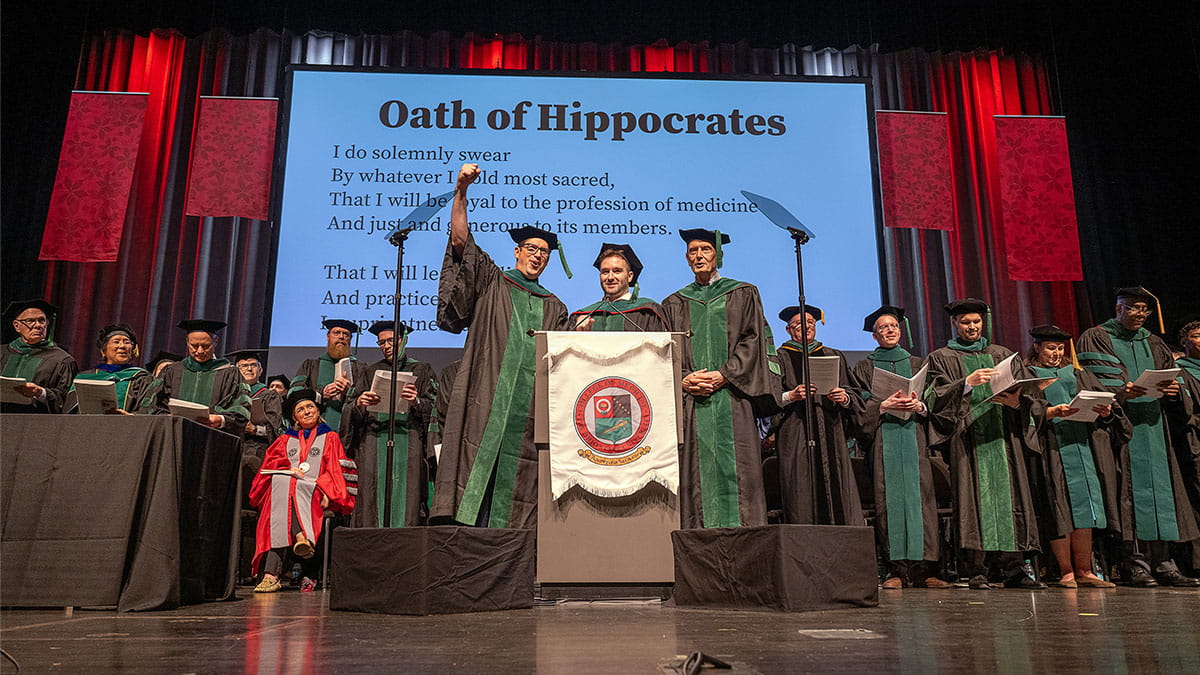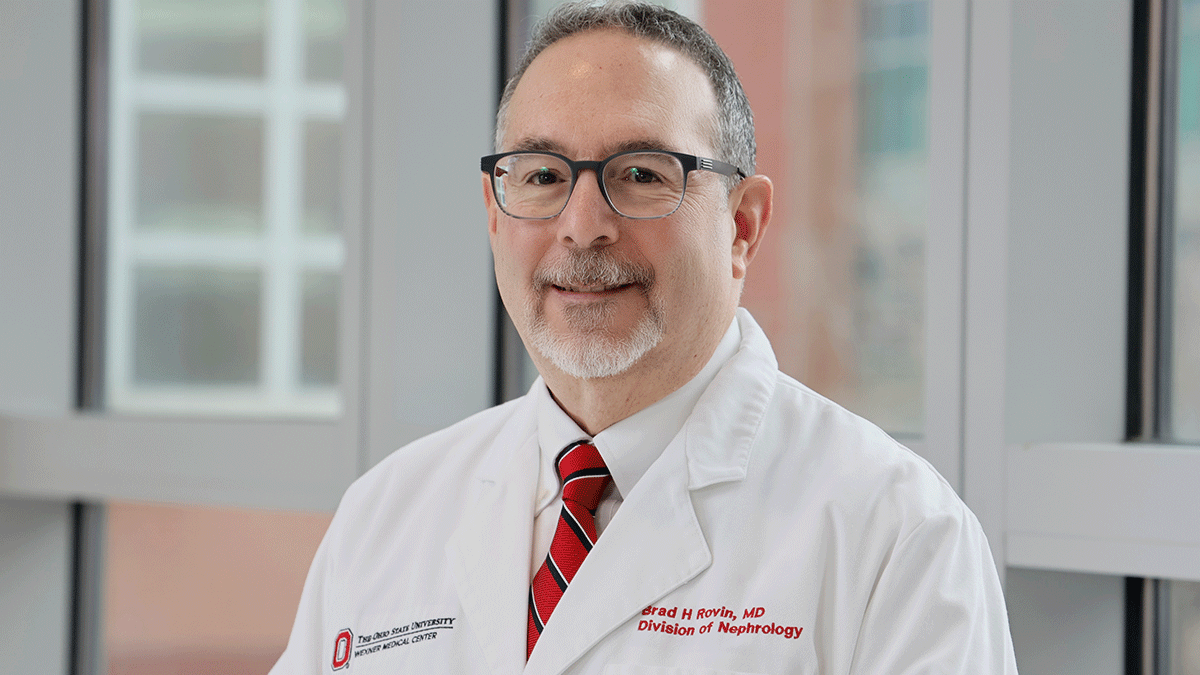Five college physician-scientists awarded 2025 College of Medicine’s Research Innovation Career Development Awards
 The Office of Physician Scientist Education and Training at The Ohio University College of Medicine recently announced the recipients of the 2025 College of Medicine Research Innovation Career Development Award (RICDA). The 12-month funding period began on Aug. 1 and supports those actively engaged in research by providing protected time for existing research projects. This year’s awardees and their projects are in the fields of neurology, transfusion medicine, hypertension, carcinoma and stroke:
The Office of Physician Scientist Education and Training at The Ohio University College of Medicine recently announced the recipients of the 2025 College of Medicine Research Innovation Career Development Award (RICDA). The 12-month funding period began on Aug. 1 and supports those actively engaged in research by providing protected time for existing research projects. This year’s awardees and their projects are in the fields of neurology, transfusion medicine, hypertension, carcinoma and stroke:
- Julia Coleman, MD, MPH, assistant professor in the Department of Surgery and the Division of Trauma, Critical Care and Burn at the College of Medicine, The Interaction of Estradiol and Platelet Biology: A Mechanistic Exploration of Sex Dimorphisms in Coagulation and Implications for Transfusion Medicine.
- Natalie Lee, MD, MSHP, MPH, assistant professor of Internal Medicine at the College of Medicine, Understanding and Advancing Implementation of Remote Hypertension Management in Primary Care.
- Lingbin Meng, MD, PhD, assistant professor in the Department of Internal Medicine and the Division of Medical Oncology at The Ohio State University Comprehensive Cancer Center – Arthur G. James Cancer Hospital and Richard J. Solove Research Institute (OSUCCC - James), CNPY2 as a Novel Biomarker and Therapeutic Target in Advanced Clear Cell Renal Cell Carcinoma.
- Mohamed Ridha, MD, neurologist in the college’s Department of Neurology and the Division of Cerebrovascular Disease and Neurocritical Care at The Ohio State University Wexner Medical Center, Cerebral Autoregulation Monitoring in Hemorrhagic Stroke.
- Zachary Risch, MD, assistant professor in the Department of Internal Medicine and the OSUCCC - James, Histology-based AI Model and Phosphoproteomics: Novel Approaches to Identify FGFR Targeted Therapy Candidates in Cholangiocarcinoma.
As a medical oncologist specializing in treating malignancies affecting reproductive and urinary systems, Dr. Meng’s work is making lasting contributions in oncology. She investigates the endoplasmic reticulum protein CNPY2's dual role in promoting tumor growth and modulating the immune microenvironment in kidney cancer. This innovative research pioneers the potential synergy between CNPY2 targeting and immunotherapy, using advanced, genetically engineered mouse models, single-cell RNA sequencing and patient tissue analyses to overcome treatment resistance, which is a critical challenge affecting 20-40% of patients with clear cell renal cell carcinoma. The award will help her advance her research by increasing her research protected time to 75%.
“This will enable me to generate robust preliminary data for an R01 grant application within one to two years,” Dr. Meng says. “It will also support my transition to independent funding, strengthen my leadership in translational oncology and accelerate the development of novel immunotherapeutic strategies.”
Dr. Coleman’s research projects focus on sex-based differences in platelet function and manipulation of platelet physiology with estradiol, with translational implications in resuscitation and transfusion medicine.
“The RICDA grant allowed me to retain my lab manager and lead during times of financial challenge, facilitating our ongoing collaborative work focused on improving outcomes and survival for bleeding patients,” Dr. Coleman says.
Specializing in vascular neurology and neurocritical care, Dr. Ridha’s research utilizes an innovative approach to reduce stroke-related disability. This funding will allow him to validate the findings from his work using transcranial Doppler ultrasound cerebral autoregulation measures.
“This could potentially lead to novel randomized clinical trials for researching personalized medicine in blood pressure management after stroke,” Dr. Ridha says. “And if successful, the project could lead to a new treatment strategy based upon treatment of blood pressure using these personalized targets, rather than the uniform targets in current practice.”



